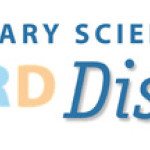- Branża: Astronomy
- Number of terms: 6727
- Number of blossaries: 0
- Company Profile:
Planetary Science Research Discoveries (PSRD) is an educational site sharing the latest research by NASA-sponsored scientists on meteorites, asteroids, planets, moons, and other materials in our Solar System. The website is supported by the Cosmochemistry Program of NASA's Science Mission ...
Term applied to molten rock in the interior of a planet or moon. When it reaches the surface, magma is called lava.
Industry:Astronomy
The region of space between the orbits of Mars and Jupiter, from 2. 1 to 3. 3 AU, where most asteroids are found.
Industry:Astronomy
The description of the physical characteristics of rocks including color, mineral compositions, grain sizes, grain shapes, texture or fabric (relationship between grains).
Industry:Astronomy
Quattro lune più grandi di Giove: Io, Europa, Ganimede e Callisto, scoperta indipendentemente da Galileo Galilei e Simon Marius nel 1609-1610.
Industry:Astronomy
U. s. missione per studiare l'atmosfera di Giove, lune e magnetosfera. La sonda Galileo fu portata nello spazio e pubblicata nel 1989 dalla navetta Atlantis. Ha usato un proprio razzo per lasciare l'orbita terrestre. La sonda Galileo arrivò a Jupiter in 1995 e completato la sua missione primaria di due anni prima di andare a esplorare l'Europa. La missione di 14 anni si è conclusa nel 2003. Sito Web del progetto Galileo.
Industry:Astronomy
U. s. missione lanciato nell'agosto 2001 per osservare e raccogliere campioni di vento solare e restituirli alla terra. Campionari sono stati ottenuti nel punto L1, circa uno milione miglia dalla terra dove la gravità della terra e del sole sono equilibrati. La capsula campione sbarcarono sulla terra nel settembre 2004 in un incidente imprevisto dopo che il suo sensore di decelerazione non riuscita e non hanno aperto i paracadute. Tuttavia, vento solare campioni sono stati recuperati, puliti e memorizzato con successo e ora sono allo studio meticoloso. Pagina Web della missione Genesis.
Industry:Astronomy
Seventeen closely related elements, the lanthanoid series, from atomic numbers 57 through 71 on the Periodic Table (some people define the series from atomic numbers 58 through 71). These elements usually occur together and are useful in geochemical modeling.
Industry:Astronomy
The part of Earth's crust, water, and atmosphere where living organisms can survive.
Industry:Astronomy
A meteorite that was observed as it fell through Earth's atmosphere and was retrieved. Since most falls are collected soon after hitting the ground, these meteorites are not badly degraded or weathered.
Industry:Astronomy
The scientific study of minerals. This is the field within geology that focuses on the chemistry, structure, properties, and classification of minerals.
Industry:Astronomy
